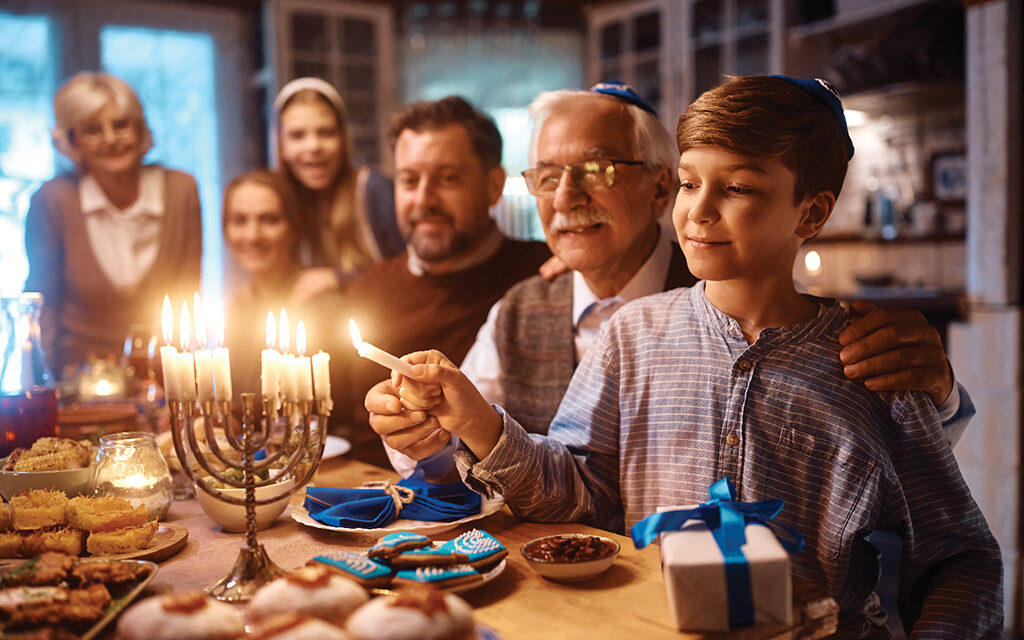Each year on the twenty-fifth day of Kislev, which typically falls during the month of December, adherents of the Jewish faith celebrate the festival of Chanukah. Although Chanukah may not bear the same religious significance as other Jewish holidays, it is a well-known celebration.
Chanukah commemorates the rededication of the Temple by the Maccabees in 165 BC after its desecration by the Syrians. Although there was not enough oil left to light the Temple for even one night, lamps remained illuminated for eight straight days and nights. Thus, Chanukah is known as the Festival of Lights, which incorporates many unique traditions.
–Lighting the menorah
Perhaps the most visible and important Chanukah tradition involves the menorah. While traditional Jewish menorahs have seven branches, the Chanukah menorah, known as the hanukkiah, actually has nine branches. There are eight candles and a ninth, which is called the shamash, is used to light the other eight. The menorah is lit each night after sundown.
–Giving of gelt
Chanukah gelt is money given as presents during the festival. It is typically offered to children and sometimes to teachers. Other gifts have now largely replaced the coins once offered, and gelt is sometimes chocolate.
–Playing dreidel
Greek Syrians outlawed Jewish studies at one point, so the Jews spun dreidels to pretend they were only playing games. Really, they were engaged with their scripture. The tradition of spinning the dreidel endures as a Chanukah tradition.
–Foods fried in oil
The miracle of the burning oil extends to the foods enjoyed during Chanukah. Many of the holiday foods are prepared in oil, including latkes (fried potatoes) and sufganiyot, which are fried, jelly-filled doughnuts.
–Serving brisket
An authentic Chanukah celebration often includes traditional dishes served in the spirit of celebration and gratitude. Brisket is frequently prepared for Chanukah dinners. Brisket was adopted because it was affordable and delicious. Jewish brisket is braised, and served with carrots, potatoes and other vegetables. Brisket may be served alongside another Chanukah dish, kugel, which is a casserole made from eggs and noodles
–Making cookies
Although Christmas cookies may be ubiquitous this time of year, cookies often are part of Chanukah traditions as well. Some cookies are cut to look like dreidels or stars. Those who want to incorporate the miracle of oil into their baking can seek recipes that use oil in place of butter in the cookie batters, something that can make them dairy-free and also vegan.
Chanukah begins on December 25, 2024, and will last through January 2, 2025. It’s a festive time to embrace many time-honored traditions.






